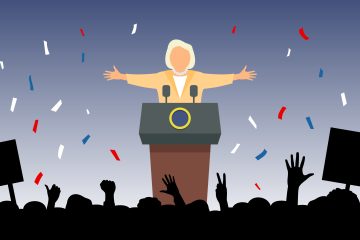Our second blog series will focus on the relationship between the politics and the digital. The overarching thesis to be explored can be found at the conclusion of Langdon Winner’s famous essay ‘Do Artefacts Have Politics?’: “people are often willing to make drastic changes in the way they live to accord with technological innovation at the same time they would resist similar kinds of changes justified on political grounds”.
There has been an explosion in multidisciplinary interest in the political implications of the Internet, social media, and the increasing normalizing of processes of datafication, surveillance and platform models in contemporary capitalist society. These new technologies have been sites of ideological, geopolitical, and cultural contestation, with many theorists attributing the return of political polarisation and increasing divides within societies to the invective and counter-productive discursive styles of social media bleeding into everyday life.
New social movements that would otherwise need to book public meetings rooms find themselves cultivating political communities online. Politicians can both exploit and be exploited by the whims of the algorithm. There are both opportunities and dangers in the implementation of contemporary technologies in all aspects of political and social life. There are issues of cybersecurity and cyber- conflict. How have different states, parties, political actors, and institutions adopted certain technological approaches – from surveillance, datafication, social media marketing strategies, etc.) – and what has been the impact? How should political theory understand the relationship between power and technology, between analogue and digital democracy, between networks and discourse, and between algorithms and authority? To what extent does digital technology compel us to change to suit its needs, and does this conflict with our ideas about freedom and authenticity? Is our contemporary situation worthy of being considered a “new Information Age” or merely the latest iteration of modernity?

Their Algorithmic Constitutions? On The Emergence and Functioning of Platform Governance

Visualising the future of visual politics

Clicktivism is quick, easy and powerful

Social Media and the Subscription Subject

Researching political abuse online is vital; how we measure it, even more so


